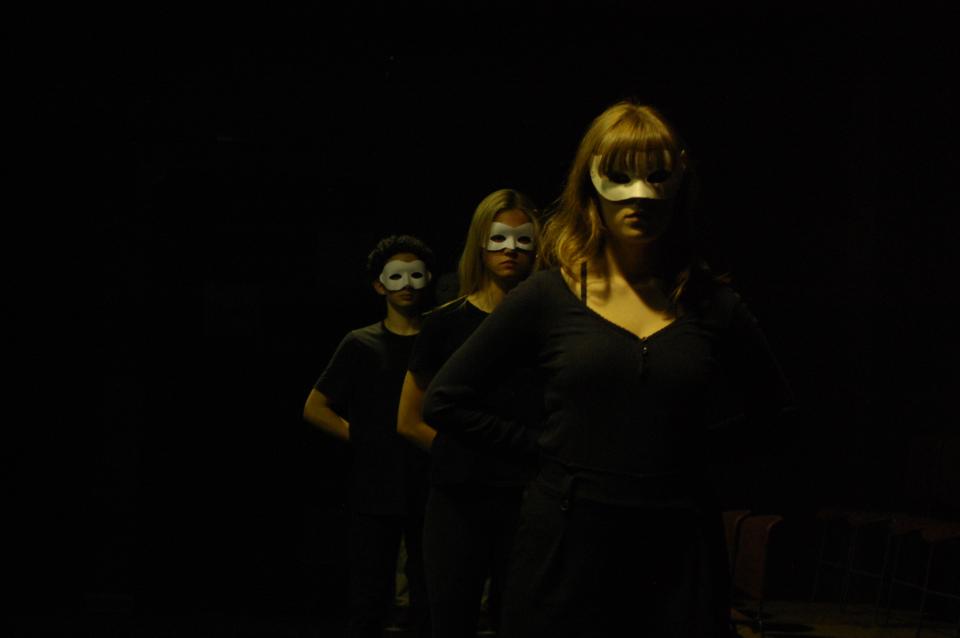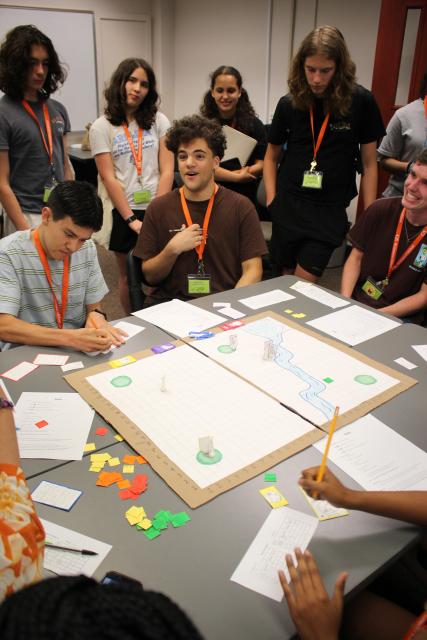Subject Area Classes
Area I is the discipline in which students apply and are nominated to attend Governor’s School. Below is a summary description of the ten Area I disciplines. The emphasis in all disciplines is on contemporary texts, compositions, artistic expressions, issues, and ideas, and the theories that flow from them. Study in each Area I discipline emphasizes theory and application over the memorization of fact. Particular focus is dedicated to contemporary theories that stimulate innovative thought in a rapidly changing culture. Courses and activities are designed to promote student creativity and move students to question assumptions and explore unanswered questions. Area I classes meet twice per day, Monday through Friday, and once on Saturday. Students spend 70% of their instructional week in Area I.

- CHORAL MUSIC – (Mixed Choir at one campus; Treble Choir at one campus) – The choral music program explores the expression of the human experience and the connection to other arts and world events through choral music. The focus is on music of 20th and 21st century composers. Students also learn the finer points of choral singing – blend, diction, tone quality – and vocal technique in rehearsals and performances.
- DANCE – The dance program embraces and expresses 20th and 21st century theories through daily contemporary modern technique classes, a survey of recent pioneers, and the integration of self-expression and abstraction through improvisation, composition, and choreography.
- ENGLISH – The English program focuses on modern and postmodern fiction, poetry, and drama. Students are encouraged to read closely, imaginatively, analytically, and empathetically. Teachers incorporate creative and analytical writing workshops and immerse students in writing throughout the session.
- INSTRUMENTAL MUSIC (Orchestra at Governor’s School West; Wind Ensemble/Band at Governor’s School East) – The instrumental music program is focused on the study and performance of significant 20th and 21st century repertoire for orchestra (West) or wind ensemble (East), and the creation and performance of student works. Students also study improvisation, composition, and technique.
- MATHEMATICS – The mathematics program strives to provide an atmosphere for students to independently and collaboratively contemplate and investigate problems that arise in contemporary mathematical fields. In addition, the program provides many opportunities for students to gain an appreciation for both mathematics and the work of mathematicians through student-faculty interaction, seminars, and guest lecturers.
- NATURAL SCIENCE – The natural science program investigates contemporary studies, methods, and topics of modern science by the use of interactive seminars, discussions, experiments, and group and individual problem solving. A variety of areas of natural science are explored through engaging lessons and projects.
- SOCIAL SCIENCE – The social science program examines major political, sociological, psychological, and anthropological concepts which have influenced the 20th and 21st centuries from theoretical and applied perspectives. Students are encouraged to see themselves as both individuals and participants in society, and combine classroom discussion with their personal experience in meaningful and analytical ways.
- SPANISH – The goal of Spanish is to expose students to contemporary thought, literature, music, art, and political trends in Spanish speaking countries. Spanish is the primary language spoken in class. Students nominated in Spanish must have completed at least three high school Spanish classes prior to attending GS or be a fluent Spanish speaker.
- THEATER – The goal of the theater program is to introduce young theater artists to contemporary and progressive theory, literature, and technique. Through a mixture of ensemble work, movement techniques, and writing, the holistic approach encourages the actor to become a well-rounded, life-long student of the theater.
- VISUAL ARTS – In the visual arts program, students study and practice visual expression consistent with current concepts and styles. Emphasis is placed on creative expression as students investigate and examine movements and theories in contemporary art, creating work both individually and collaboratively using a variety of materials.

